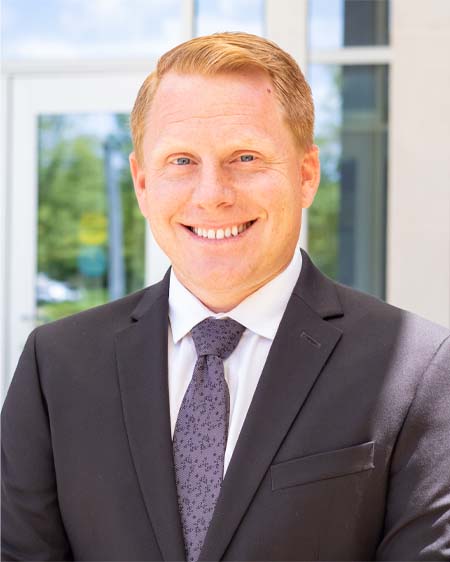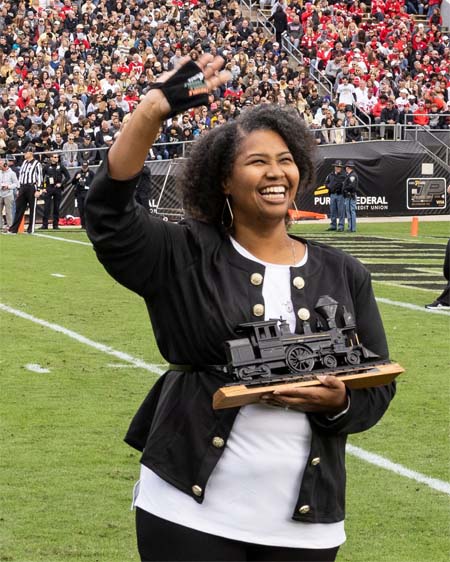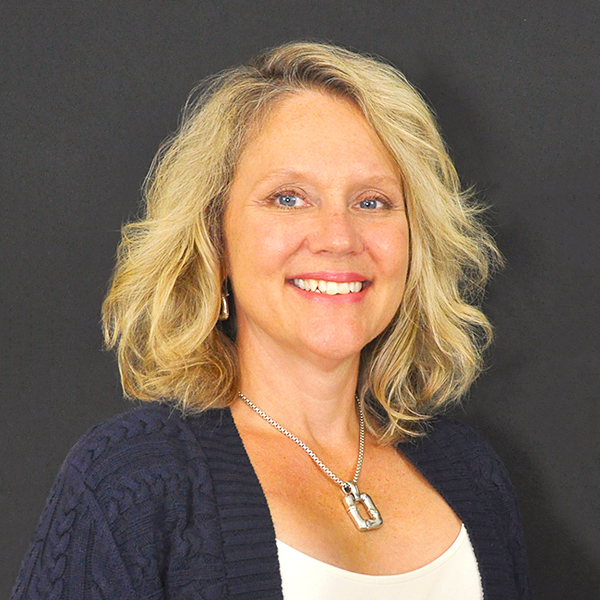Student Life Professionals Making an Impact Beyond Purdue

Innovators. Mentors. Leaders. Student Life staff serve in these roles as they create and deliver impactful programs to the more than 50,000 students on Purdue’s campus. In true Boilermaker spirit, some members have taken this impact one step further to create an impact beyond Purdue through their participation in professional organizations.
One of those individuals is Mike Warren, director of Recreation & Wellness (RecWell), who serves on the board of directors and is a member of the general assembly of the National Intramural and Recreation Sports Association (NIRSA), a higher education leader that promotes the advancement of recreation, sport and well-being. Warren has been a member of the organization for more than 15 years and was recruited to the board of directors due to his reputation as an innovator in the campus recreation and wellness field. In addition to helping provide vision and guidance for the organization as a member of the board, Warren helps analyze future opportunities and challenges as a member of the NIRSA assembly.
“I think it’s really important to be in the room with some of the best and brightest minds in your field and that’s usually the highly involved NIRSA members,” says Warren. “The board of directors represents multiple institutions and each one has different sizes and scopes, but we all have things to share from our opportunities and challenges.”
One of the issues campus recreation departments around the nation are facing is the cost of graduate assistantships and its impact on the number of professionals entering the field, which has caused challenges in attracting newcomers to the profession. Warren has been able to share with NIRSA members how Purdue creatively attacked this problem by offering a professional internship program, which has already resulted in the hiring of full-time staff at RecWell. Sharing ideas and solving problems such as these are at the root of why it is important to be involved in a national organization, particularly in a field where student demand for services is growing.
“Campus recreation and health and well-being, in general, are growing fields,” Warren says. “Students are coming in expecting more services and programs. How do we meet that demand with potentially fewer professionals running those different programs and services?”
Being involved in a national organization such as NIRSA also opens opportunities for Purdue students to pursue additional development opportunities beyond campus. For example, NIRSA programs have helped supplement the growth of Purdue intramural and club sports officials through regional and national extramural tournaments. Traveling to such events elevates the profile of Purdue’s well-regarded officiating program, which boasts alumni in numerous professional sports leagues. Other opportunities available to students include conferences and symposiums.

Mentorship is at the core of the impact Martia Brawner King, director of student involvement in Student Activities and Organizations, has on campus and beyond. King has previously been recognized with a Special Boilermaker Award and mentors first-year students from northwest and northern Indiana urban areas as part of the Posse Foundation.
“There’s this theme of mentoring and that’s something that I truly enjoy,” King says. “That’s been part of my life since I was in high school. People taught me about social justice and connecting with my community even before I knew what those words meant. These were people who were investing in me and my success and that’s all I want to do for others.”
It’s these ideals that led King to apply to serve as a mentor as part of the Association of College Unions International’s (ACUI) Closing the Gap Career Advancement Program, a mentoring program for professionals of color. Closing the Gap facilitates peer networking across identities, supports the professional development of mid-level professionals, provides opportunities for cross-generational learning and increases potential employers’ access to a diverse pool of talented leaders. This was King’s first foray into ACUI programs as well, with most of her previous professional organization experience coming with the National Association of Student Personnel Administrators (NASPA).
“It was great professional development on a micro level to connect with various staff of color wherever they were at in the field,” King says. “One of the women I mentored was in facilities. While I might not know much about facilities, I can share how to navigate different people and situations, be a responsible supervisor and advocate for yourself. Those are the things I truly enjoy and was able to connect with them about.”
King mentored two colleagues, one from New Jersey and the other from Hawaii, as part of the Closing the Gap program. King regularly met with each of her mentees virtually and connected through text messages and regular phone calls. She met each of her mentees and more members of Closing the Gap at regional and national events, which allowed her to further grow her network.
“As a woman of color, it’s important to share how to navigate institutions where the majority of people do not look like you and may not understand your culture or frame of reference,” King says. “We have to help people navigate these spaces. If I can pick up a call from someone and might understand what they’re going through, even from miles and miles away, I want to help them navigate the situation.”
At the ACUI national convention, King additionally co-led a session on how important it is for professionals of color to have mentors outside of their area on campus and be aware of their resources.
“You need people to reach out to and have conversations with,” King says. “I talked about mentorship and even having peer mentors. Have people you can check in with, even if they’re on the same level, to see if you did something right, you could have done something better or see if you’re on the right track. It’s important to have somebody you can trust who can tell you if you’ve messed up. It’s also important to have sponsors, who aren’t necessarily people you seek out, but who know of the things you do and can speak to your work in places you might not be.”
King’s participation in the program was not only a leap into an organization she hadn’t been involved with before, but an extension of the mentality she displays in her work on campus.
“It’s the concept of ‘lift as you climb,’” King says. “I have a hand. If I’m coming, we’re coming together.”
While King’s impact focused on individual mentorship, Beth McCuskey, vice provost for Student Life, focused on organization-wide impact as the 2017 president of the Association of College and University Housing Officers – International (ACUHO-I). The organization boasts more than 17,000 members representing 3.2 million on-campus students from around the world. Before being elected president, McCuskey had served as chair of the ACUHO-I Foundation board and been a long-time member of the organization.
“I felt like I wanted to give back,” McCuskey says. “I grew up in the student housing field and this was an opportunity to both share what I’ve learned and help the profession as a whole.”

As president, McCuskey focused on strategic planning, the leadership of the board, building connections, setting priorities and building organizational continuity. During McCuskey’s tenure, the organization focused on further solidifying international connections with research faculty to better understand the impact of living on campus. While she contributed her research-based perspectives in the role, McCuskey said it was important that ACUHO-I support initiatives that can be sustained regardless of who is leading the organization.
“I feel like our field, as any field, is a continuum,” McCuskey says. “I think it’s important that we each have our own contributions based on our expertise and what we believe to be important but, fundamentally, we need to keep a big ship moving – it’s not about redirecting the ship.”
As a leader, McCuskey drew on a foundational experience from her early days of membership in the organization. During the mid-1990s, then-president Bob Mosier attended a presentation McCuskey gave at the MACUHO conference, the Mid-Atlantic regional conference of ACUHO-I. Seeing him in attendance struck a chord with McCuskey.
“That moment in my career drove how I wanted to be perceived in the role,” McCuskey says. “When I was in the role, it was important to me to connect during these sessions and be present.”
Leading an organization allowed McCuskey to share successful Purdue housing initiatives, such as the then-newly completed Honors College and Residences residence hall, while also keeping a finger on the pulse of challenges and opportunities other institutions around the country and world were facing. Having institutional and individual connections through organizations such as ACUHO-I help the University anticipate future needs, learn from the experiences of others and adapt successful programs to Purdue.
“The relationships you can build, the connections you can make and their long-term value are crucial,” McCuskey says. “It connects back to the networking piece of our own Steps to Leaps initiative. Having a place to talk when you face challenges on your campus and having friends who might have a more objective view you can brainstorm with is a crucial thing in your career.”
Memberships in organizations can also create opportunities to contribute to discussion and innovation in various fields. For example, McCuskey recently participated in a panel on artificial intelligence as a result of connections made through the Association of Public & Land-Grant Universities (APLU).
McCuskey, Warren and King all encourage fellow professionals to join organizations in their field to further their professional growth and explore new opportunities.
“I would suggest anybody in any professional organization that they’re a part of to take that chance, join a committee or initiative, and not discount what they can contribute with their ideas and experiences,” King says. “I believe in student affairs. I believe in what we can do as a profession, but we have to move it forward. We need to have folks who are willing to share their experiences.”
 .
.